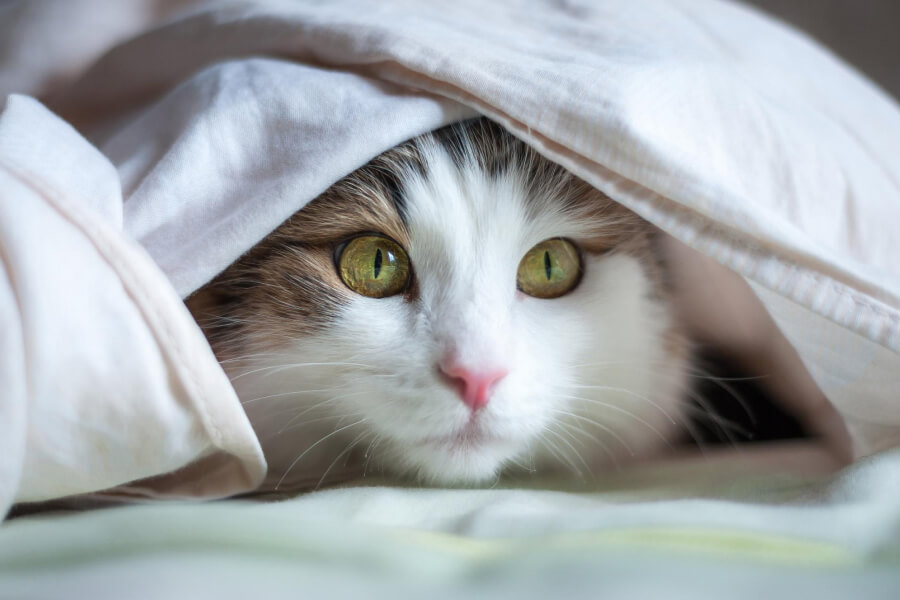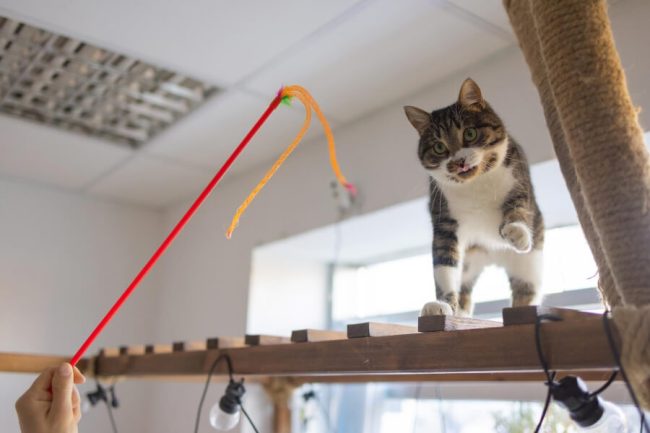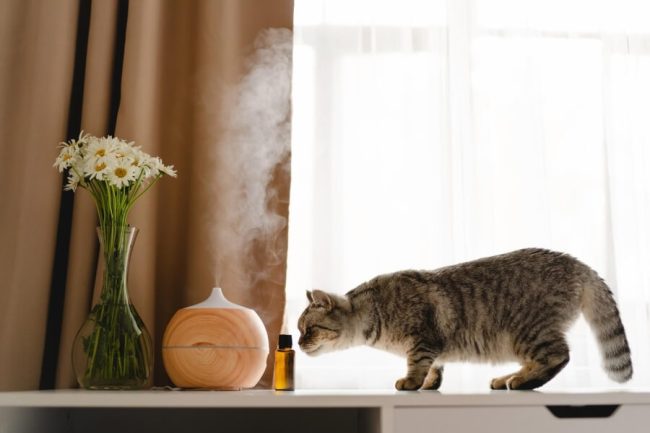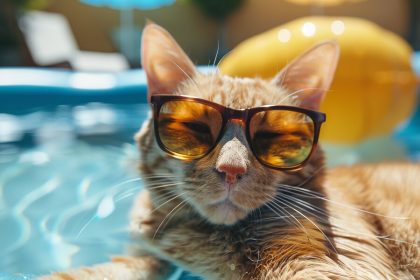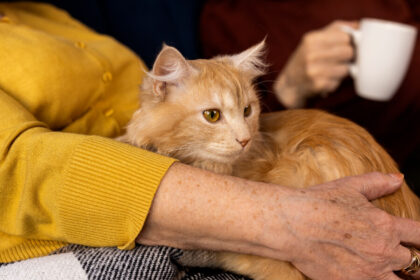If you’re a cat owner, you know how stressful it can be when your cat is experiencing anxiety.
Just like humans, cats can feel stressed and uneasy, but there are many natural ways to help calm your feline companion.
Here are some of the causes of cat anxiety, how to spot the signs, and natural remedies that can help your cat feel more relaxed.
Cat Anxiety: Causes and Symptoms
Cats, being sensitive creatures, may experience anxiety for a variety of reasons. Understanding the causes of cat anxiety is the first step in addressing the issue.
Common Triggers of Cat Anxiety
- Separation Anxiety: Cats can become anxious when left alone for long periods.
- Environmental Changes: A move to a new home, new furniture, or unfamiliar people can trigger stress.
- Loud Noises: Thunderstorms, fireworks, or construction sounds can make your cat anxious.
- Health Issues: Pain or illness can result in anxiety in cats.
- Overstimulation: Too much petting or environmental overstimulation can cause anxiety.
Identifying Signs of Cat Anxiety
Recognizing cat anxiety symptoms is key. Common signs include:
- Hiding or becoming more reclusive
- Excessive grooming or changes in grooming habits
- Aggression or irritability
- Litter box problems
- Loss of appetite or excessive eating
- Scratching or biting more often
If your cat shows these signs, it’s a signal that they might be suffering from anxiety.
Effective Natural Remedies to Soothe Cat Anxiety
There are several natural remedies to help ease cat anxiety. Below are the most effective options.
Herbal Solutions: Safe and Effective Herbs for Cats
Certain herbs are known for their calming properties:
- Valerian Root: This herb helps calm the nerves of anxious cats.
- Chamomile: Chamomile is a mild calming and can be given in small doses.
- Lavender: Known for its calming effect, lavender can soothe your cat’s nerves.
Always consult your vet before introducing herbs to your cat’s routine.
Aromatherapy for Cats: Essential Oils and Their Benefits
Aromatherapy can also help with cat anxiety. Essential oils like lavender, chamomile, and cedarwood can have a soothing effect when diffused in your cat’s environment. However, essential oils should be used with caution and always in diluted form to ensure safety.
Dietary Adjustments: Foods that Help Calm Cats
The right diet can also help manage cat anxiety. Look for foods that include:
- Tryptophan: Found in turkey and chicken, helps produce serotonin, which promotes relaxation.
- Omega-3 Fatty Acids: These fatty acids found in fish oils help reduce stress.
- B Vitamins: Support your cat’s nervous system, which can help reduce anxiety.
Environmental Modifications: Creating a Safe Space
Create a quiet and safe space for your cat. This can help them feel more secure and reduce cat anxiety.
Use soft bedding, and limit exposure to stressful noises. A retreat area gives your cat the peace they need during times of stress.
Behavioral Techniques to Reduce Cat Anxiety
Behavioral changes can also help soothe your anxious cat.
Play and Engagement: The Role of Interaction
Engaging with your cat through play can help them focus their energy on something positive, reducing cat anxiety. Interactive toys like feather wands or laser pointers can be great for this.
Establishing Routines: The Power of Consistency
Cats thrive on routine, and having a set schedule for meals, play, and quiet time can help alleviate cat anxiety. Regularity helps your cat feel safe and secure in their environment.
Mindfulness and Relaxation Techniques for Cats
Simple relaxation techniques can be very effective. Soft petting or sitting quietly with your cat can help them calm down, reducing feelings of anxiety.
Complementary Approaches: Tools and Products for Cat Anxiety
In addition to natural remedies, there are several tools and products designed to help reduce cat anxiety.
Pheromone Diffusers and Sprays: How They Work
Pheromone diffusers release calming scents that mimic your cat’s natural calming pheromones. These products are a great way to reduce cat anxiety during stressful events.
Calming Music and Sounds: Therapeutic Audio for Cats
There are even music tracks designed to calm anxious cats. Playing these calming sounds during stressful events, such as thunderstorms or when you leave the house, can help reduce anxiety.
Catnip and Its Effects: A Natural Calmer
Catnip can work wonders for some cats. It naturally relaxes cats and can provide a quick remedy for anxiety, though not all cats respond to it.
When to Visit a Doctor for Your Anxious Cat
While natural remedies for cat anxiety can be effective, there are times when professional help is necessary. If your cat’s anxiety is severe or doesn’t improve, consult your veterinarian.
Recognizing Severe Anxiety Symptoms
Severe anxiety in cats may include aggression, refusal to eat, or excessive hiding. If these symptoms persist, it’s important to seek professional help.
Prescription Options vs. Natural Remedies
In some cases, your vet may recommend medication for cat anxiety, especially if the anxiety is severe. While natural remedies work well for mild anxiety, more persistent or severe cases may need additional support.
Many cat owners have found success using natural remedies to manage cat anxiety. For example, one cat owner used valerian root and calming music to help their cat adjust to a new home. Another found pheromone diffusers to be effective during thunderstorms.
Conclusion
Cat anxiety is a common issue, but it’s manageable with the right approach. From herbal solutions to environmental adjustments, there are many natural remedies that can help calm your cat’s nerves.
If natural remedies don’t seem to help, don’t hesitate to consult with your vet for further guidance.
FAQs
What natural things calm cats down?
Herbal remedies like valerian root, chamomile, and lavender can help calm anxious cats. Pheromone diffusers and calming music are also effective.
What do you give cats for anxiety?
Herbal supplements, essential oils (in moderation), and a calming diet can all help reduce cat anxiety.
What smell relaxes cats?
Lavender and chamomile are known to have relaxing effects on cats.
What is a natural calming oil for cats?
Lavender and chamomile essential oils can be used to calm cat anxiety, but always ensure they are diluted and used carefully.

